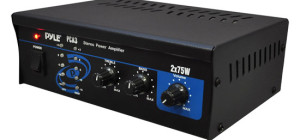 This report provides a comprehensive analysis of the current smart speaker market, focusing on key players, trends, and potential opportunities. The findings in this report are based on the information provided and highlight the main factors influencing the growth and development of the smart speaker industry.
This report provides a comprehensive analysis of the current smart speaker market, focusing on key players, trends, and potential opportunities. The findings in this report are based on the information provided and highlight the main factors influencing the growth and development of the smart speaker industry.
Introduction
Smart speakers are an increasingly popular category of consumer electronics that combine voice recognition technology with internet connectivity to provide a wide range of functionalities, such as music playback, news updates, weather forecasts, and smart home control. Over the past few years, demand for smart speakers has grown significantly, resulting in a highly competitive market with numerous established brands and new entrants vying for market share.
Key Players
There are several prominent companies competing in the smart speaker market today. Some of these key players include:
- Amazon: The pioneer of smart speakers with its Echo product line featuring Alexa voice assistant. Amazon holds a significant share in the market due to its early entry and continuous innovation.
- Google: A major competitor with its Google Home devices powered by Google Assistant. Google has been steadily gaining market share with its wide range of products at different price points.
- Apple: With its premium-priced HomePod devices featuring Siri voice assistant, Apple targets a more high-end customer segment within the smart speaker market.
- Sonos: Known for its high-quality audio products, Sonos has entered the smart speaker market with its Alexa and Google Assistant-enabled devices.
- Baidu: A leading player in China’s smart speaker market with its Xiaodu series of speakers featuring DuerOS voice assistant.
Market Trends
Several trends have emerged in the smart speaker market that are shaping its evolution:
- Voice-assistant integration: As consumers become more accustomed to using voice assistants like Alexa, Google Assistant, and Siri, they expect seamless integration between these platforms and smart speaker devices.
- Smart home control: Smart speakers are increasingly becoming the central hub for controlling various smart home devices, such as lighting, thermostats, and security systems. Consumers now seek speakers that can easily integrate with their existing smart home ecosystems.
- Audio quality: As the market matures, users are placing a greater emphasis on audio quality. Manufacturers are responding to this demand by developing speakers with better sound performance and offering premium models aimed at audiophiles.
- Privacy concerns: With growing awareness about data privacy, consumers are increasingly concerned about the security of their personal information when using smart speakers. This has led manufacturers to introduce features like physical microphone mute switches and improved privacy settings.
- Market segmentation: The smart speaker market is becoming more segmented as companies target specific customer segments with specialized products, such as affordable entry-level devices, high-end premium models, and even child-friendly smart speakers.
Potential Opportunities
Based on the current market trends and key players in the industry, there are several potential opportunities for growth and innovation:
- Developing new voice assistants: There is room for new entrants to develop their own voice assistant technology to challenge the dominance of established players like Amazon and Google.
- Expanding into niche markets: Focusing on under-served customer segments, such as seniors or people with disabilities, could provide an opportunity for differentiation in a crowded market.
- Emphasizing data privacy: By addressing consumer concerns about data privacy and security, companies can position themselves as a trusted alternative to existing players in the market.
- Collaboration with content providers: Forming partnerships with popular streaming services, podcasts, or audiobook platforms could drive additional demand for smart speakers as users seek improved content experiences through these devices.
In conclusion, the smart speaker market is a rapidly evolving landscape characterized by intense competition and ongoing innovation among key players. By staying informed about current trends and potential opportunities, companies can strategically position themselves for success in this dynamic industry.







